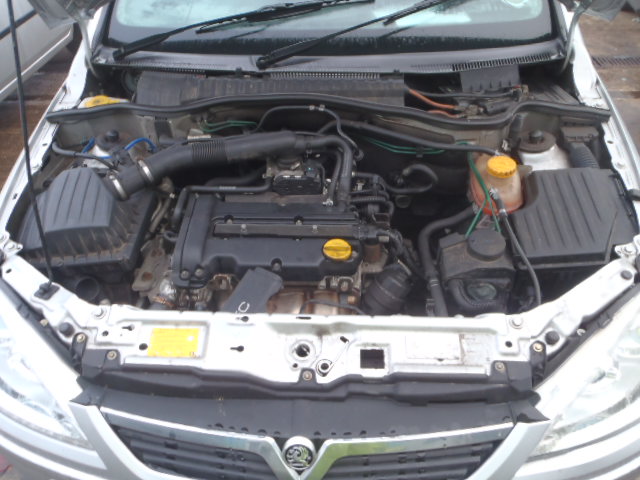Engine Buying Expert Tips on Selecting the Right Engine for Your Details Requirements
Selecting the ideal engine for your particular demands entails a complicated interplay of variables that go beyond plain horsepower numbers. By delving into the intricacies of power versus performance, examining fuel rankings, and budgeting for long-lasting costs, one can genuinely optimize their engine option.
Power Vs. Effectiveness: Finding the Equilibrium
When selecting an engine, it is crucial to strike an equilibrium between power and effectiveness to meet your certain needs properly. Power describes the engine's capacity to create energy for propulsion, identifying elements like velocity, hauling ability, and overall efficiency - Opel Corsa 1.4 Engine Price. On the various other hand, effectiveness relates to exactly how well the engine utilizes fuel to create power, impacting aspects such as gas economic situation and ecological kindness
Attaining the appropriate balance in between power and performance is essential because an engine that is also powerful might eat excessive fuel, bring about greater operating expense and unnecessary strain on the setting. On the other hand, an engine that prioritizes effectiveness over power might result in sluggish performance, particularly in requiring scenarios like hauling hefty lots or driving uphill.
To make an informed choice, take into consideration factors such as your common driving problems, the desired use the car, and your personal preferences. By assessing your concerns and demands, you can pick an engine that strikes the perfect balance in between power and efficiency, ensuring ideal efficiency while decreasing ecological impact and operating expense.
Recognizing Engine Size and Type
To further refine the selection process of an engine that strikes the ideal equilibrium in between power and performance, it is important to explore the intricacies of understanding engine dimension and kind. Engine dimension refers to the total volume of air and gas that can be pressed with the engine cylinders. It is normally determined in liters or cubic centimeters. Larger engine sizes generally cause even more power output but can also lead to lowered gas effectiveness. On the various other hand, smaller sized engine sizes are frequently more fuel-efficient but might compromise some power.
Usual engine kinds consist of inline engines, V engines, and rotary engines, each with its unique advantages and downsides. Understanding the interaction in between engine size and kind is important in picking an engine that aligns with your certain demands and priorities, whether it be power, effectiveness, or an equilibrium of both.

Consider Your Vehicle's Needs
If you are looking for an engine for a durable truck that will be utilized for towing, you will require an effective engine with high torque capacities. On the other hand, if you are choosing an engine for a portable automobile mostly made use of for city travelling, gas efficiency may be a more important factor to consider.
If you often drive in mountainous or hilly locations, a durable engine with great climbing power will be essential. By straightening the engine specs with your automobile's requirements, you can guarantee that your car operates successfully and satisfies your performance assumptions.
Assessing Fuel Performance Ratings
Examining gas efficiency rankings is a critical element of selecting the appropriate engine for your car, guaranteeing cost financial savings and environmental sustainability. Gas efficiency rankings, usually measured in miles per gallon (MPG) for gas engines or kilowatt-hours per 100 miles (kWh/100 miles) for electric engines, show exactly how much a car can take a trip on a particular quantity of fuel or power. Higher MPG or reduced kWh/100 miles worths represent extra effective engines, converting to decreased gas costs and lower carbon discharges.
Additionally, compare different engine choices within the very same lorry course to identify the most cost-effective option. my sources Aspects such as engine dimension, weight, the rules of aerodynamics, and crossbreed or electrical capacities can all affect gas performance.
Budgeting for Long-Term Prices
Purposefully intending for long-lasting expenses is essential when picking an engine, making sure financial sustainability over the vehicle's life expectancy. While the initial acquisition cost of an engine is a significant variable, it is vital to consider the lasting expenses linked with upkeep, repair services, and fuel usage.
Furthermore, looking into the accessibility and price of replacement components for the selected engine is crucial in spending plan planning. Engines with economical and conveniently offered parts can substantially impact long-lasting upkeep expenses. In addition, considering the engine's toughness and expected lifespan can aid avoid unforeseen substitute prices in the future. By thoroughly budgeting for these lasting expenses and factoring them into the decision-making procedure, individuals can choose an engine that not more helpful hints just meets their instant requirements yet also remains economical throughout its life expectancy.
Conclusion
Finally, selecting the best engine for your particular requirements needs balancing power and effectiveness, comprehending engine size and type, considering your vehicle's requirements, evaluating gas performance rankings, and budgeting for long-lasting expenses. By very carefully thinking about these elements, you can guarantee news that you choose an engine that meets your requirements and supplies ideal performance for your vehicle.
To even more refine the option procedure of an engine that strikes the optimal equilibrium in between power and efficiency, it is essential to dive into the intricacies of recognizing engine size and kind. Engine size refers to the complete volume of air and gas that can be pushed via the engine cyndrical tubes. Common engine kinds include inline engines, V engines, and rotating engines, each with its one-of-a-kind benefits and drawbacks. Comprehending the interplay in between engine size and kind is vital in choosing an engine that aligns with your details requirements and concerns, whether it be power, efficiency, or a balance of both.
